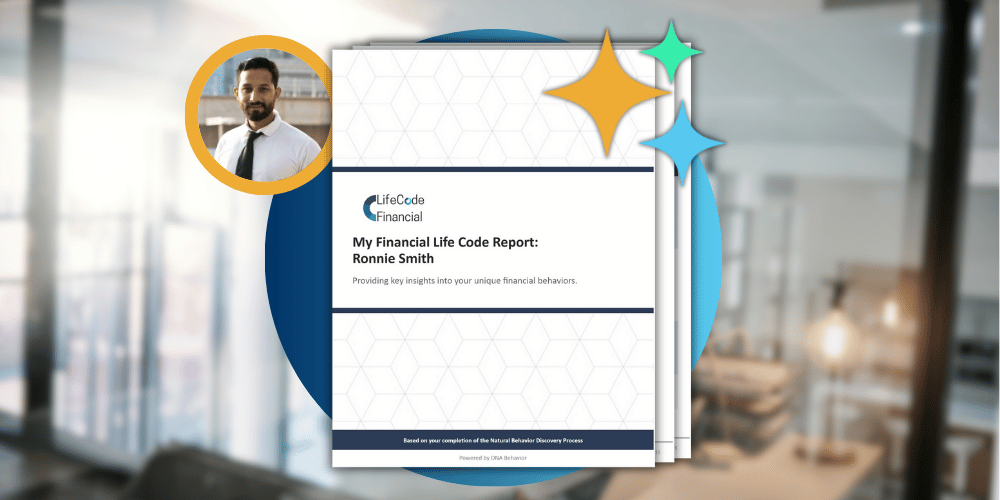Be Warned: Check Yourself Before You Wreck Yourself!
Money Energy Law #40: Check yourself before you wreck yourself. Seek independent input before deciding.
Our purpose-driven software and behavioral experts work together to meet your business needs best.
Our app lets you toggle between insights most relevant to the employee or client experience.
Key behavioral insights can be integrated into your favorite web tools and custom applications.
Our behavioral experts can help you get the most out of our technology through training programs, customized workshops, and more.
Register for one of our online events to get focused guidance on the practical uses of our platform and have your questions answered.
Learn how we use psychometric measurement to accurately predict a person’s personality traits for identifying their behavioral style and money attitudes.
Reinforce your understanding of how BeSci Tech can create a life-changing shift in the way people think, make decisions, run their businesses, and relate to others.
Get a little background on our business and take a peek at the behavioral style reports of our team members!
Got questions? We're available by phone, email, or chat to discuss any of our behavioral solutions.

Money Energy Law #13:
Take calculated risks to accelerate growth. Identify the risk needed to achieve your goals.
Calculated risk is a concept that is frequently discussed in various aspects of life, from financial decision-making to healthcare choices. Defined as taking an action that has potential negative consequences but also offers a chance for positive outcomes, calculated risks can have a significant impact on overall health, happiness, stress, and wealth.
Taking a calculated risk is more likely to be the result of inherent behavior and less situational than one may think. If individuals know this about themselves, they can manage risk safely. This is where I offer a word of caution: Do not confuse perceived risk with calculated risk.
How can you tell the difference?
Perceived risk is more of a subjective judgement, resulting in either overreacting or underreacting to the potential outcomes of a decision. Your emotions, contextual factors, and personal experiences are not always aligned with actual risk. And a calculated risk is just that—calculated. It means you are carefully analyzing risks to rewards, and both are influenced by your behavioral preferences. I know it sounds like there is a fine line between the two, but perhaps the easiest way to think about it is perceived is reactive and calculated is proactive.
Taking it one step further, having a propensity for wealth creation (increasing capital and generating income) and taking the proactive steps to get there are intertwined with your instinctive behavioral style and your relationship with money that includes risk-taking. Achievement will vary based on discovering your Money Energy potential.
A situational case study will help to clarify.
Robert Davis is 39. He runs a telecommunications business and has won contracts with the leading telco providers to sell and install their services. Robert is an Initiator DNA Style; he takes the lead, sets the agenda, is direct, and is a risk-taker. He has toys, cars, boats, and houses and rarely makes a wrong step. He knows his financial behavior. To others, he looks like someone who lives on the edge, but everything he does is planned and has a purpose with well-defined goals. He is respected for his community generosity, and his motto is “work hard and play hard,” which he does.
When his newly married sister asked him to invest in a business she and her spouse were starting, Robert didn’t listen to his normal “hard-wired” financial behavior. He forewent the proactive analysis that would prompt him to check, research, and plan. Instead, he acted upon emotional connections and saw the opportunity as a low perceived risk and didn’t hesitate to invest. After less than a year, his sister's enterprise unfortunately failed, leaving him with financial investment loss and her debts.
Of course, he stepped up and met his obligations, but it was a wake-up call that cost him a significant amount of money energy causing stress and a period of unhappiness, poor eating, and lack of exercise.
Robert has since overcome this temporary setback and has taken the learning lessons from his experience. The moral of this story: When perceived risk and emotions are combined, they can reduce your Money Energy potential, but unite calculated risk with healthy financial behavior and they can add to it.
Stay tuned every week as we continue to reveal all 40 Laws of Money Energy.
Get the latest in your inbox by joining our Money Energy Digital Community.

Money Energy Law #40: Check yourself before you wreck yourself. Seek independent input before deciding.

Money Energy Law #33: Do not be a prisoner to debt. Instead, reduce liabilities that can be called for immediate payment.

At DNA Behavior, we constantly innovate to deliver tools that empower advisors and clients to make better decisions. Our business—the business of...